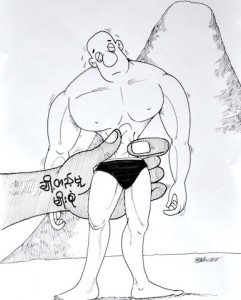As the country’s economy opens up following the lifting of sanctions and a new FDI law, foreign investment is pouring into Burma’s untapped market and local entrepreneurs are hoping to benefit from emerging opportunities.
On the panel this week: Dr. Sai Sam Htun, Chairman of Beverage manufacturer Loi Hein; U Myat Oo, CEO of Baby Vita Medical Products; Vicky Bowman, Director of Myanmar Centre for Responsible Business; and economic expert, Aung Chain Bwa.
Panellists disagreed about the benefit of foreign companies entering the Burmese market.
“I welcome multinationals, but the reason my company will not cooperate with multinationals at this time is because if we do then our trademarks will all disappear” said Dr. Sai Sam Htun.

However, Aung Chain Bwa disagrees, insisting Burmese companies can survive foreign competition, “Burmese companies know the most about Burma,” he said. “Let [foreign companies] come in as much as they want. Only in theory will we be defeated, but in practice there are lots of examples where we are not defeated”.
U Myat Oo sees the benefit of foreign companies producing their products in Burma. He does not think that the country is ready for innovation in medicine as 90% of medical products are still imported from outside the country.
“For pharmaceuticals, it would be good to have foreign companies producing medicine here so we can benefit from the technology,” he said.
Some foreign companies are bringing with them new equipment and new opportunities for local business innovators.
But Aung Chain Bwa points out that there are still obstacles.
“What is difficult for the young people is they have the innovation but they don’t have the capital” he said. “Finding the capital investment is very difficult.”
Business developers are finding company survival depends more on their bank balance than their ideas.
“It is not easy to get a loan by showing a business proposal in this country” says Htoo Myint Naung, the CEO of Technomation, a computer software business.
Information Matrix CEO, Thaung Su Nyein agrees.
“I would like an environment where a business’ survival does not depend on how much money they have but how innovative they are,” said the media and technology entrepreneur.
Panellists raised concerns about transparency in businesses and policy making. High standards set by international companies may cause problems in Burma where businesses often have to deal with bribery and corruption.
[related]
“The problem is there is only one law but there is no standard. So it is very difficult for foreign companies,” said Vicky Bowman.
“If they want to meet foreign standards there is no clear law,” she added.
The panellists said local business owners had lost faith in the policy makers and that more transparency was needed.
“We can trust each other only when we have mutual transparency,” said U Myat Oo.
Burma is located in the heart of the world’s fastest-growing region, close to a huge and expanding market. Panelists agree that despite the challenges, the liberalisation of Burma’s economy will bring with it many opportunities.
You can join the debate and watch the full programme in Burmese at dvbdebate.com
Or share your views with us by commenting on our website at dvb.no


